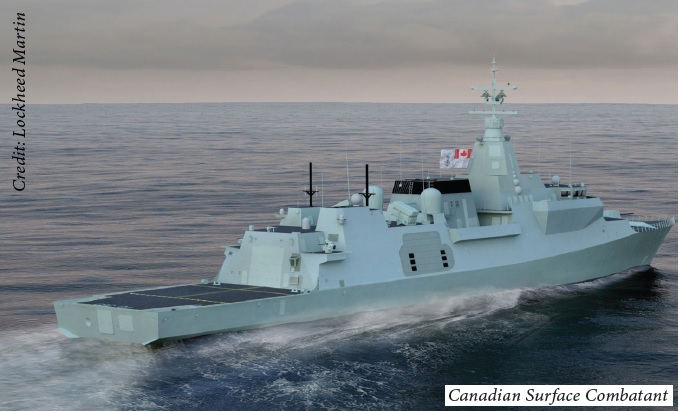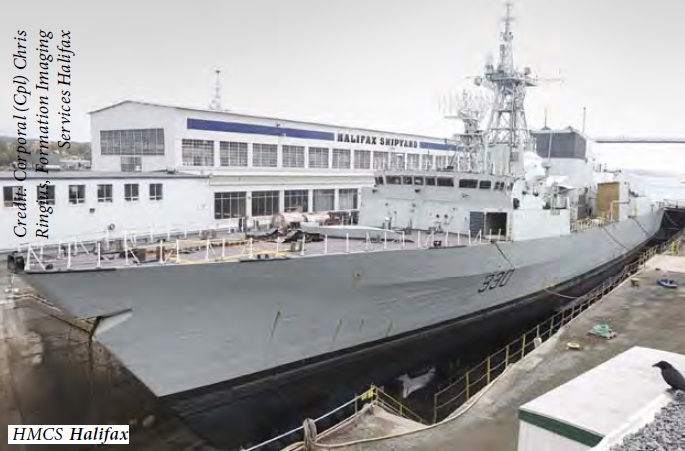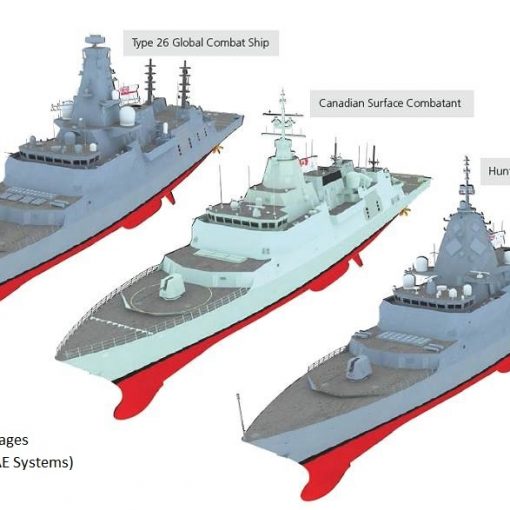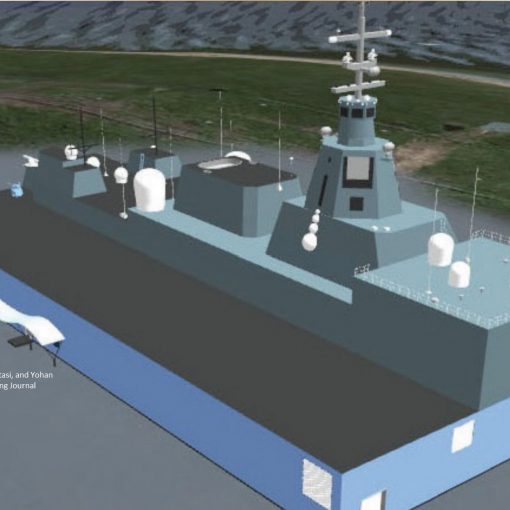Procrustes, 16 May 2020
As Canada contemplates some gradual easing of the many regulations imposed on virtually every sector of the national economy, economists and other public policy experts are in general agreement that paying for the current emergency measures and then finding money to help kick-start the locked down economy will be a long and gradual process, perhaps requiring many years.
Funding issues will therefore be the all-consuming priority. In this confused environment, it is fair to ask where National Defence will rank in Ottawa's policy priorities.
Where will big-ticket defence procurement items - the Canadian Surface Combatant (CSC) and the fighter replacement - stand in Ottawa's pandemic recovery economic plans? Have political and bureaucratic delays finally created the unenviable perfect storm for these programs?

Adding to Ottawa's defence funding woes will be the inevitable collision between the RCAF's jet fighter replacement program and the RCN's CSC program. These two programs, representing Canada’s most costly defence acquisitions ever, were already on a converging course over scarce funding dollars. The pandemic and the economic recovery programs it will inevitably entail will simply exacerbate an already bleak funding outlook. The federal government, even under ideal pre-pandemic circumstances, would have been hard-pressed to fund these programs simultaneously. Under partially relaxed pandemic protocols, funding both appears to be out of the question. Thus, will Ottawa be compelled to choose between these programs? Are unemployed, job insecure Canadians likely to be sympathetic to calls of wealthy shipbuilders for preferential government assistance and funding guarantees?

Even should the shipbuilding programs be given precedence, crucial questions remain. Will the existing construction programs continue but at a slower pace, in part necessitated by workplace physical distancing requirements? Will the mounting cost projections of the CSC program - now approaching $5 billion per ship (and this without life-cycle costs added in) - force Ottawa to re-think its NSS priorities? This is a staggering sum by most standards and one that even ex-military apologists for Ottawa's build-in-Canada policy will be increasingly hard-pressed to justify. And because Ottawa's eccentric compete-then-negotiate bid process has thus far (and predictably) failed to produce a final, fully costed contract, will the ultimate price tag be so grossly excessive that even debt-bloat-friendly politicians cannot stomach the sticker shock? This approach to warship 'competitions' should be abandoned in future as a negotiating-without-leverage failure. The competition for the Canadian Patrol Frigate in the 1980s went through a full 8 iterations, and at each stage design-capability trade-offs were informed by costed projections.

What options are left then? If it is decided to continue with the current CSC design but at a far more leisurely pace, this will only drive up costs due to inflation and will undermine the goal of encouraging an efficient and competitive shipbuilding industry. Drastically paring down the CSC performance capabilities and/or buying far fewer ships will make a mockery of the aim of providing the RCN with a modern fleet of warships in a timely manner. The existing Halifax-class frigates are showing their age with fires, breakdowns and corrosion issues. As it now stands, the navy will have to operate these ships well into the 2040s before they are fully replaced, yet there are rumblings that no funds have been earmarked to operate these ships for that long. What about re-starting the competition a la the CF-18 replacement in a search for a cheaper option? Or, in what would prove to be the death-knell of the NSS, might Ottawa simply decide to cut its losses, abandon the current CSC process altogether, and buy a ship offshore that is both affordable and available?
In the end, the dithering politicians, technology-smitten naval planners, greedy shipbuilders, and risk-averse and process-obsessed fumblecrats in Ottawa may have delayed themselves into an economic perfect storm caused by the confluence of the collapse of the oil industry, indigenous blockades of rail transportation, and the Covid-19 pandemic. The future surely does not bode well for the NSS in a post-pandemic world.





2 thoughts on “The NSS and Covid-19”
Yes, this is doom and gloom for all to be sure. Looks like the NSS and Canada’s Navy is on its last legs! Not really liking the CSC Design option photo though. The one pictured looks very much like the Australian Hunter class frigate with that mast. A more reasonable option photo would be the LM CSC Frigate design.
Images corrected – CNR support.